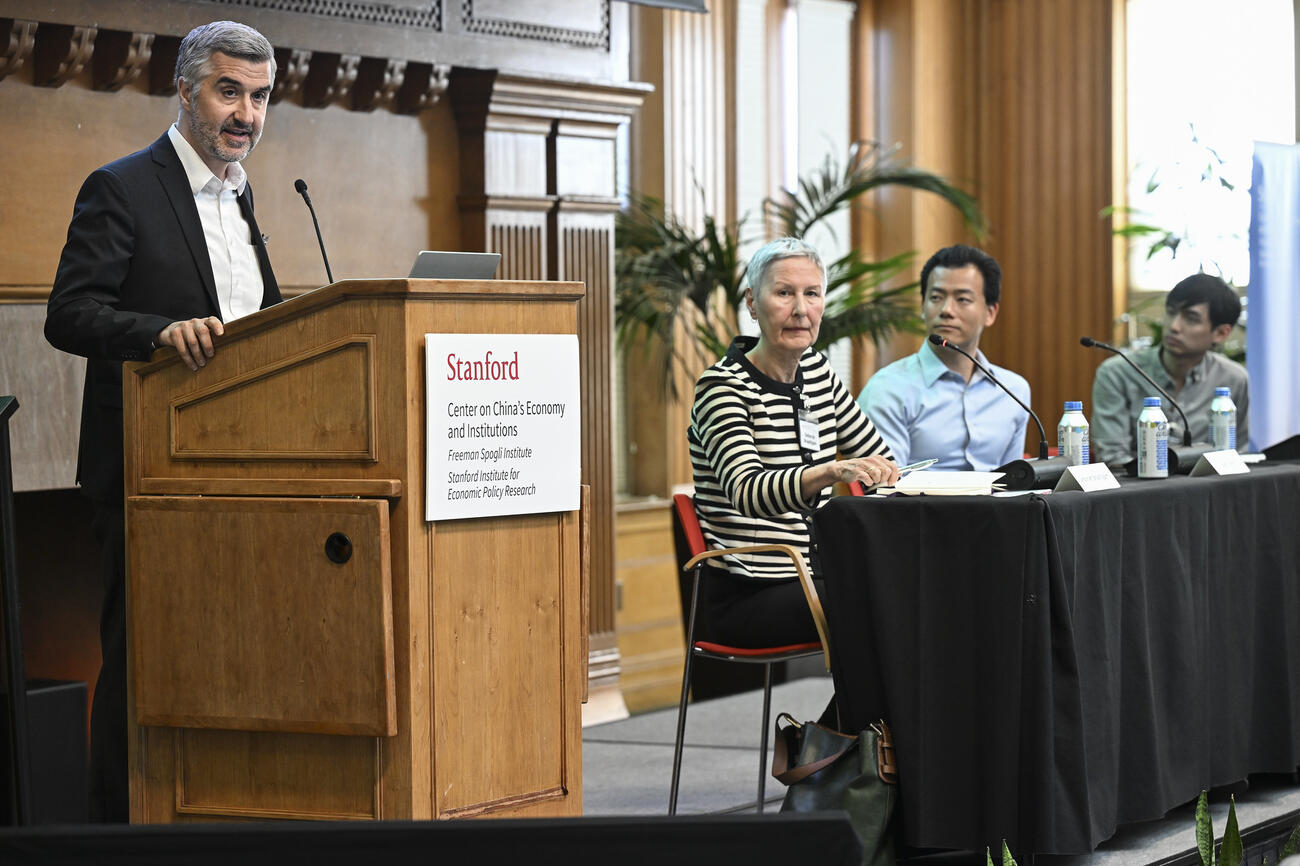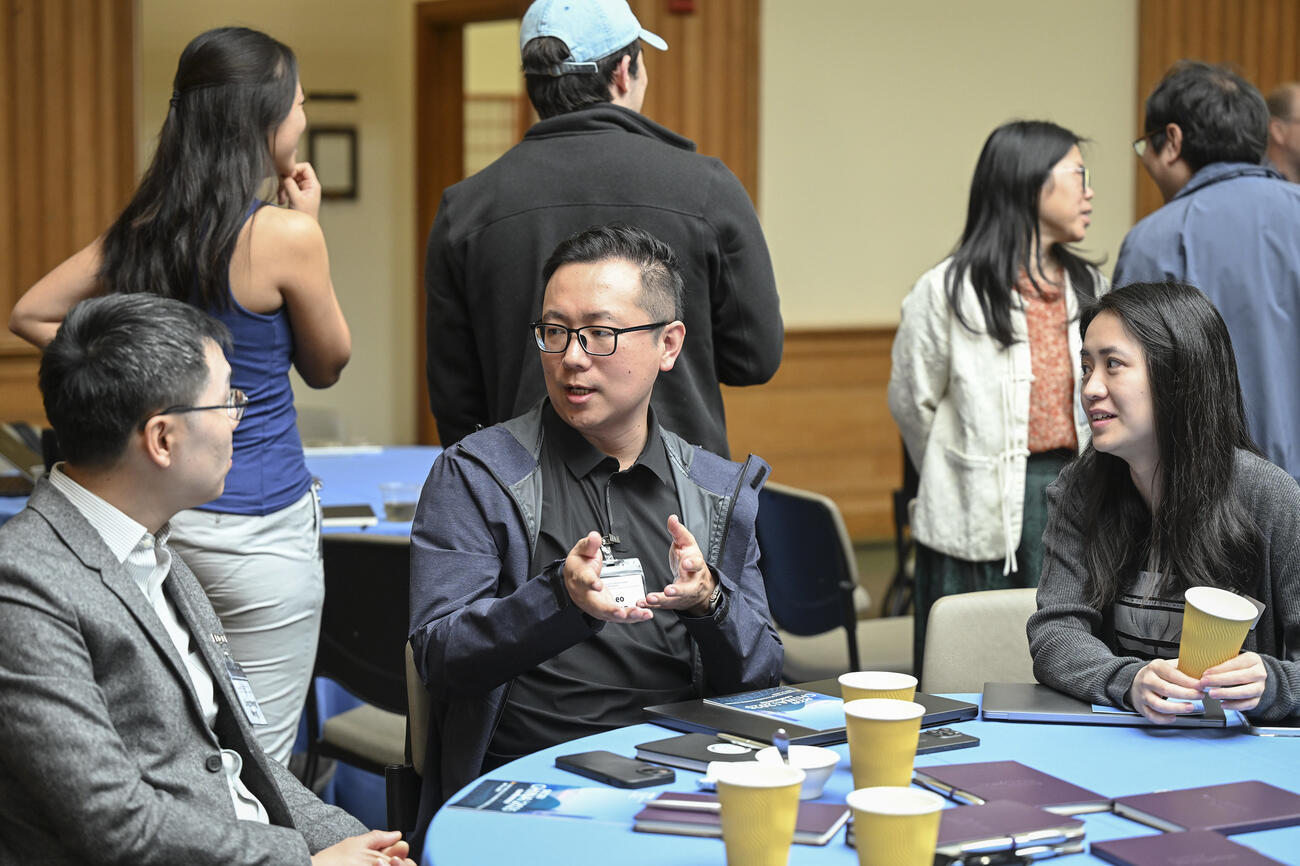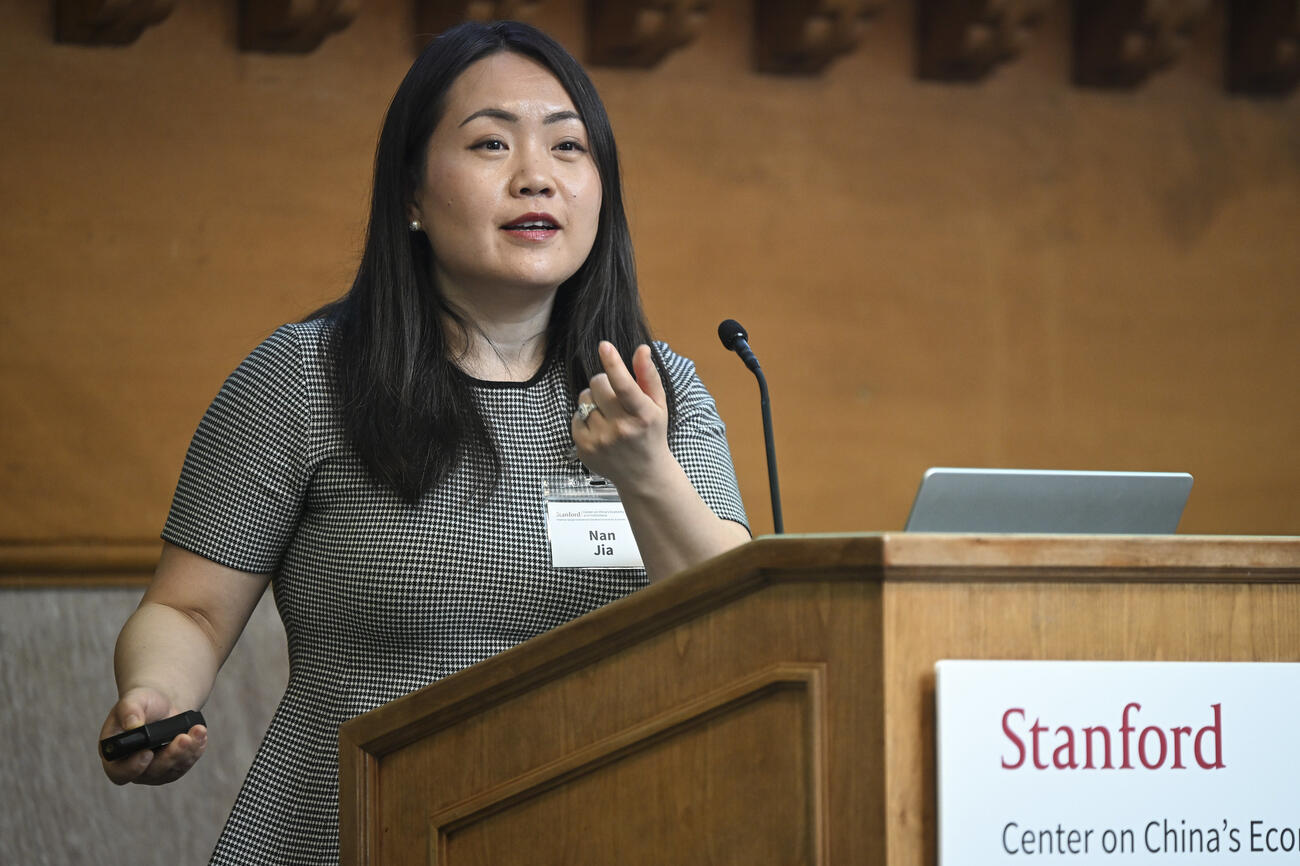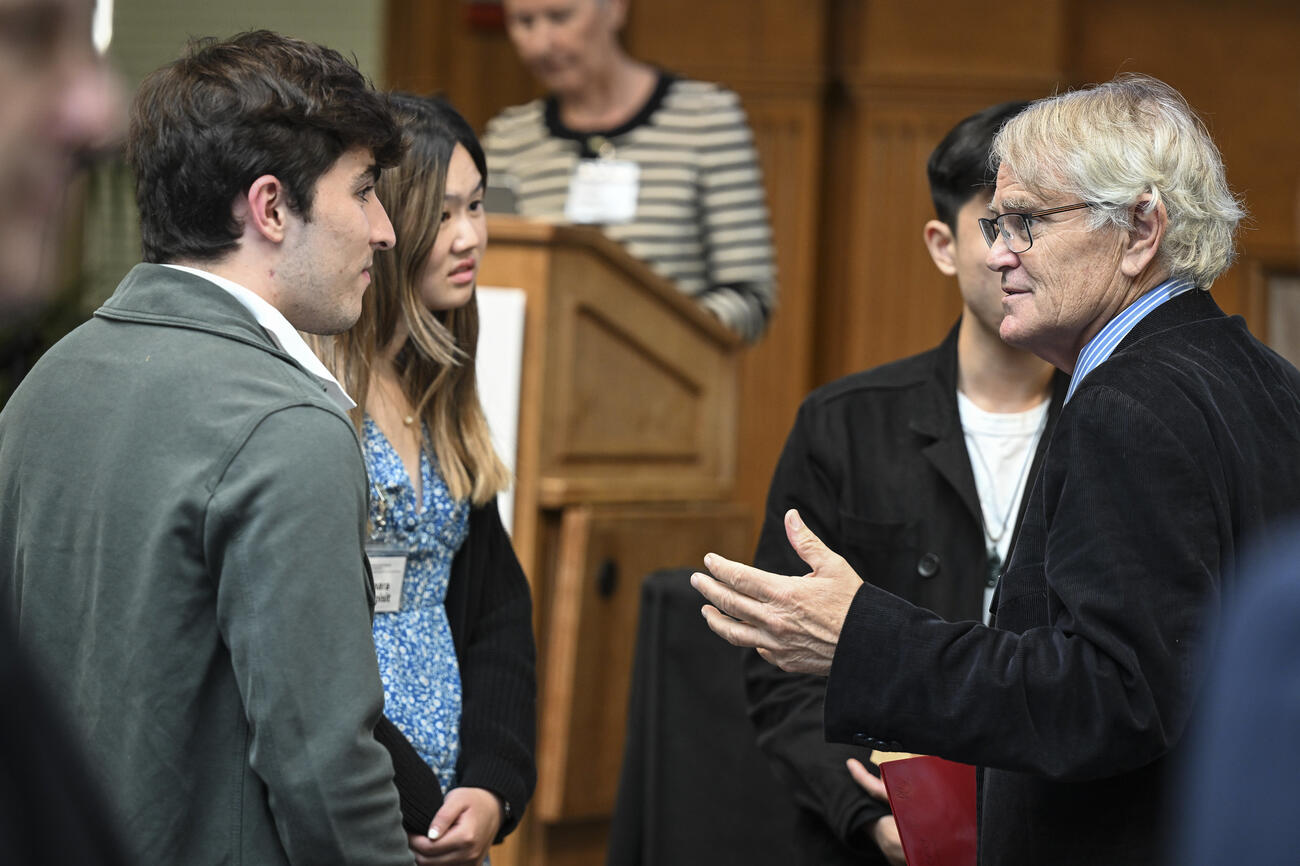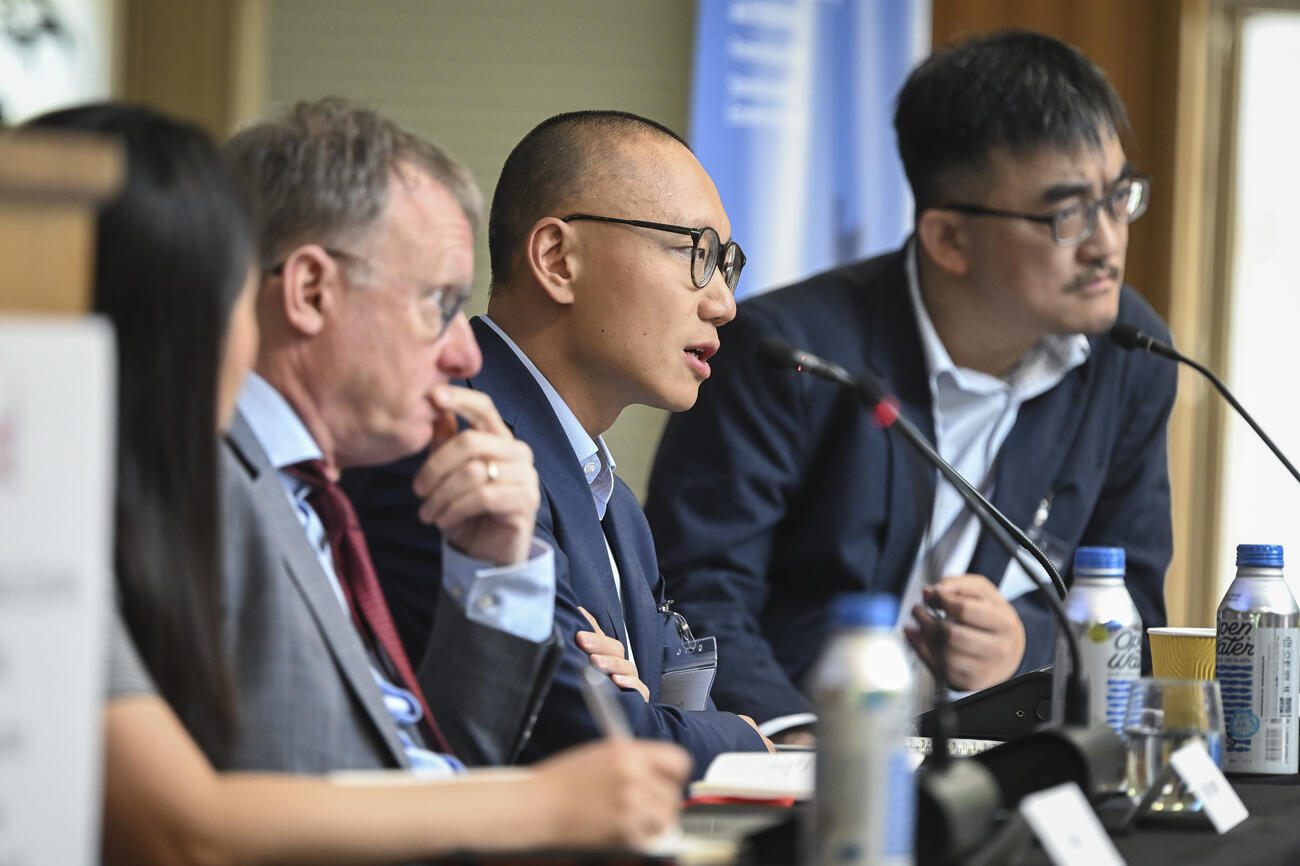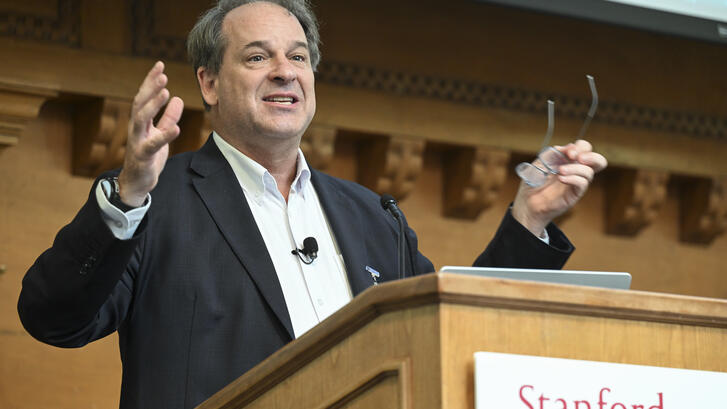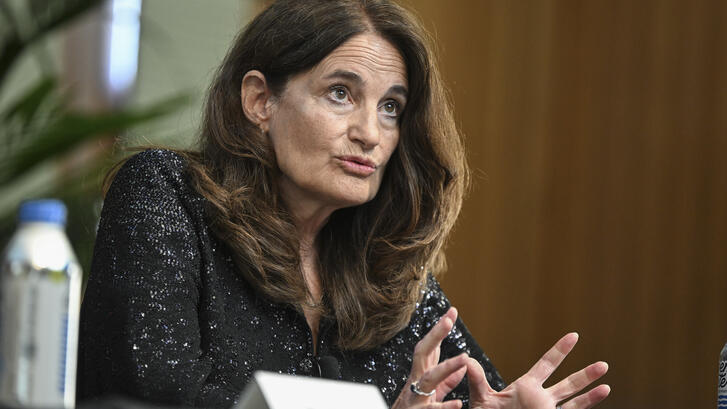Conference Explores China’s Strategic Posture in a Rapidly Changing Global Economy
Conference Explores China’s Strategic Posture in a Rapidly Changing Global Economy
The second annual SCCEI China Conference, held at Stanford University on May 14, brought together leading scholars and policy experts. Panelists offered a candid, multifaceted view of China's global economic position, exploring its technological prowess, industrial diplomacy, and the increasingly complex global responses to its expanding influence.
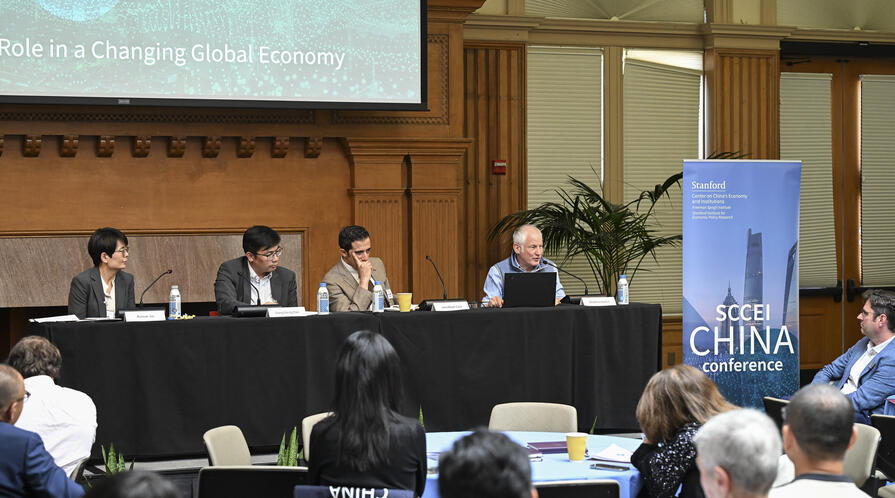
The second annual SCCEI China Conference, held at Stanford University on May 14, brought together leading scholars and policy experts to engage in a lively discussion on the evolving contours of China’s strategic posture in an ever-changing global economy. Amid a shifting geopolitical and economic landscape, panelists examined how structural shocks—ranging from trade fragmentation to military realignments—are forcing a reassessment of long-standing assumptions. The conference offered a candid, multifaceted view of China's global economic position, exploring its technological prowess, industrial diplomacy, and the increasingly complex global responses to its expanding influence.
Groping Towards a New Great Power Equilibrium
The era of a unipolar security order led by the U.S. and a laissez-faire economic regime anchored in globalization is over. Its demise was hastened by three structural shocks: U.S. backlash to trade liberalization, China’s sweeping industrial policies, and its growing military assertiveness. In the U.S., political support for trade collapsed while China’s Made in China 2025 industrial policies brought about “a large shift in the global production map.” China’s security alignment with Russia, and militarization of regional waters, recast its rise as a national security threat. As one panelist put it, “the dominant role China plays in supply chains now has a national security valence.”
Compounding the matter for one panelist is the weakening of U.S. allies. The U.S comprises just 5% of the global population but accounts for 25% of global GDP and 50% of global military spending. Meanwhile Europe’s share of GDP has dropped from 30% to 17%, even as it shoulders nearly 50% of global social spending—much of it underwritten by U.S. security guarantees. U.S. domestic spending has risen unsustainably from $3.7 trillion under George W. Bush to over $7 trillion, requiring a necessary rebalancing, even if it is messy and unpopular.
U.S. expectations that economic integration would liberalize China have proven wrong and misguided assumptions continue to mar relations. One panelist noted that in Beijing “political concerns are more important than economic interests.” In the latest trade war with the Trump administration, China resisted concessions, prioritizing regime legitimacy and national pride. Conceding on trade isn’t just an economic loss—it would be an unacceptable “political surrender to Western capitalism.”
As the U.S. and China grope for a new equilibrium, one panelist concluded, “if we can get to cold war, we’re good. Cold wars are not hot, and they allow for cooperation.”
Slowing Growth, Thriving Tech
Despite slowing economic growth, China’s industrial and tech strength remains formidable. Its economy is ~75% the size of the U.S. in dollar terms, but China accounts for 33% of global manufacturing value-added, projected to rise to 49% by 2050. “China is very strong in all sorts of advanced manufacturing... in many cases it is almost entirely a Chinese concern.”
The gap is vast, according to another panelist: in 2023, China had 1,500 commercial ships under construction; the U.S. had three. Non-state firms drive export growth, crowding out for shrinking shares of foreign-led exports (60% to 30%). “There is plenty of profitable activity going on, especially in the non-state sector.”
Meanwhile, Made in China 2025 has paid dividends. “At a first approximation, it looks like a pretty good success,” said one panelist, citing EVs, clean tech, and automation, but admitted that weaknesses persist in sectors like semiconductors and aerospace. Nevertheless, China’s highly competent manufacturers, tech companies, and deep reservoir of human capital ensure that despite costly and inefficient industrial policies, China still has “a good amount of fuel left in the tank.”
Rather than stagnating like Japan in the 1990s, panelists agreed China would more closely resemble a “Leninist Germany”—an authoritarian state with a globally competitive, export-driven, tech-intensive economy.
An Enduring Value Proposition for the World, but Pushback is Growing
Around the world China is embedding itself in local production ecosystems. Several panelists described how Chinese firms have established smartphone assembly plants in Ethiopia, Uganda, Kenya, and Indonesia. EV assembly and battery processing plants have followed, particularly in Zimbabwe and the DRC. In practice, countries receiving China’s investment often express more concern about being left behind by the West than overwhelmed by China.
China’s outbound investment is not just commercial; it is also strategic. As one panelist put it, this “industrial diplomacy” steers capital toward geopolitically friendly or economically useful countries—especially those with preferential trade access to the U.S. or E.U., like Mexico and Morocco—and away from places perceived as hostile, such as India.
This strategy has helped China rebuild global supply chains with itself at the center, creating new production ecosystems around batteries, robotics, AI, and advanced manufacturing. As one expert noted, firms like BYD, Xiaomi, and Huawei are at the core of “interlocking industrial ecosystems” that tie together multiple cutting-edge sectors across borders.
Yet pushback is growing. In 2023, 117 of 198 World Trade Organization complaints against China came from low- and middle-income countries. These nations aren’t rejecting Chinese investment, panelists pointed out—they’re renegotiating harder, hedging more, and believing less.
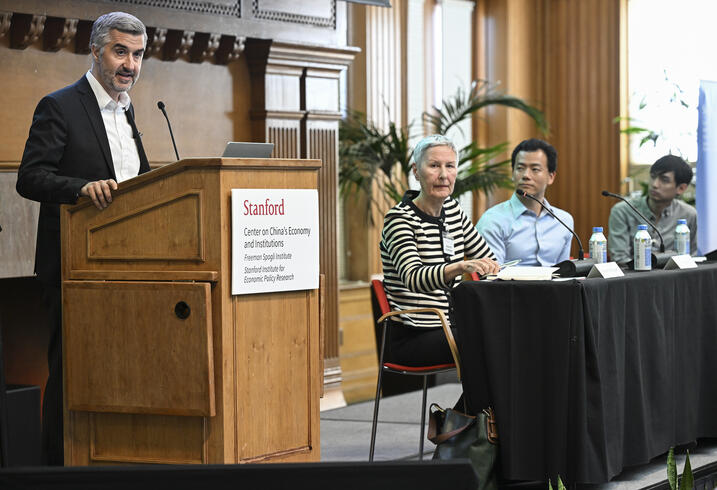
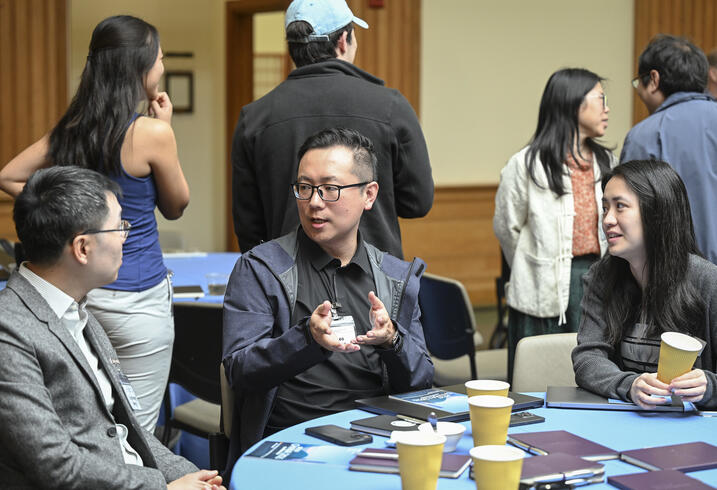
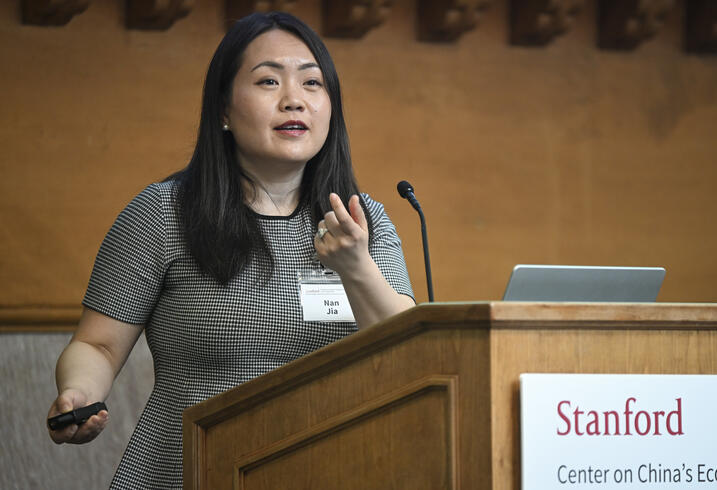
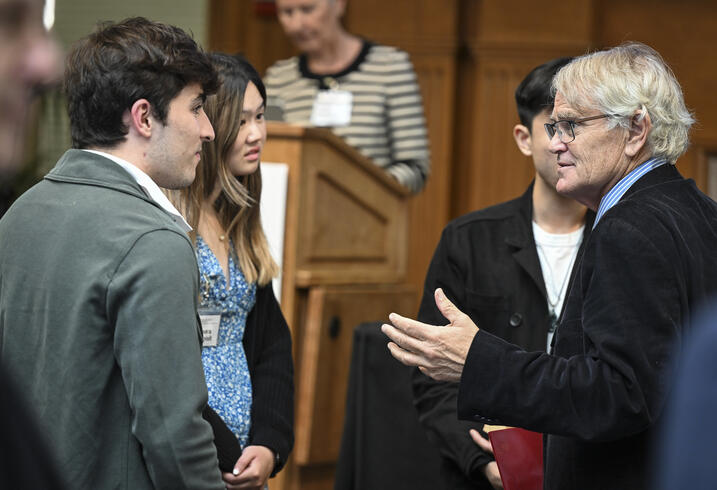
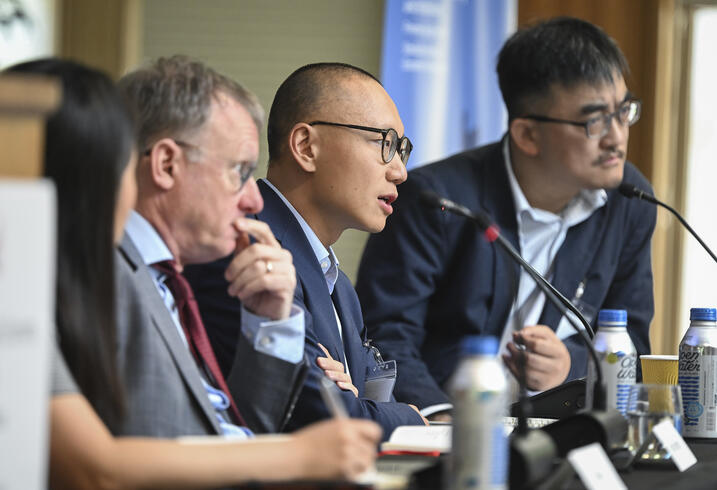
The conference underscored a world in flux—one where China’s industrial and technological dynamism continues to reshape global supply chains even as its assertive statecraft provokes growing resistance. While some panelists warned of the breakdown of integrationist hopes, others saw opportunity in a more defined and stable strategic rivalry, even if it takes the form of a new cold war. A key takeaway was the paradox of China’s global role: it remains an important source of growth and innovation, yet inspires distrust that is prompting nations to pursue more reciprocal, conditional partnerships. In navigating this uncertain era, both China and the West appear to be groping toward a new equilibrium—messy, complex, and decidedly post-unipolar.
Discover more from the 2025 SCCEI China Conference.

